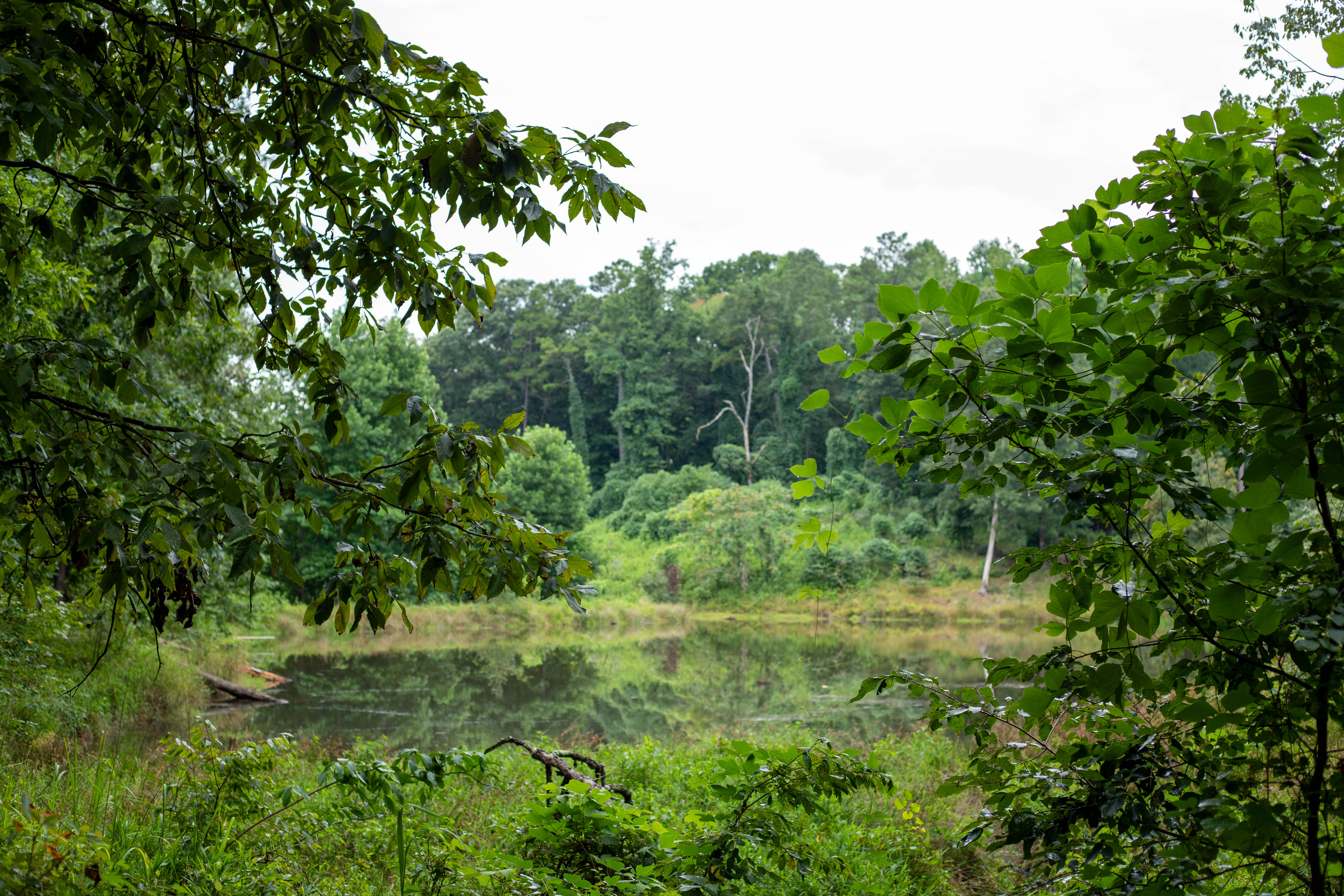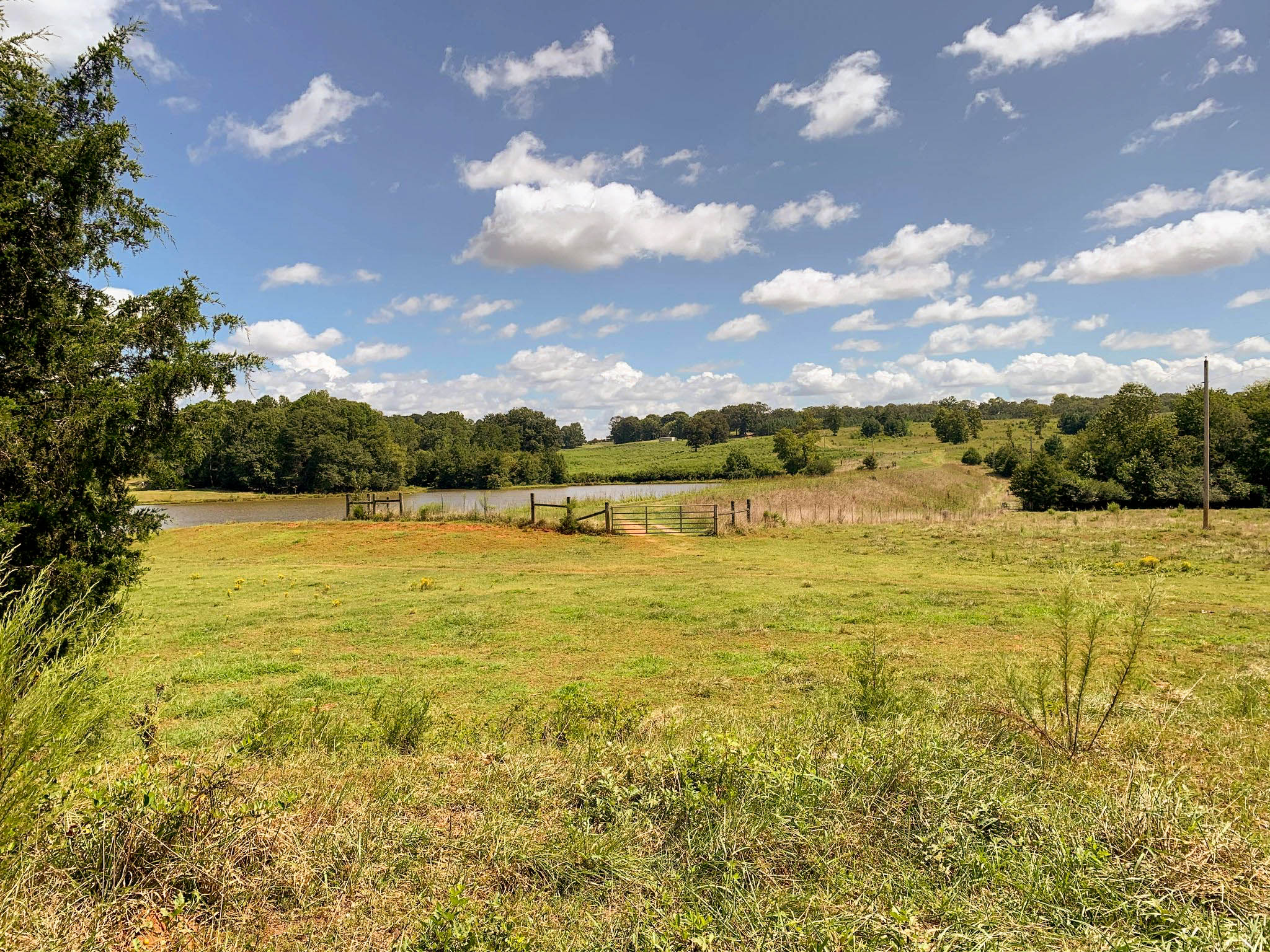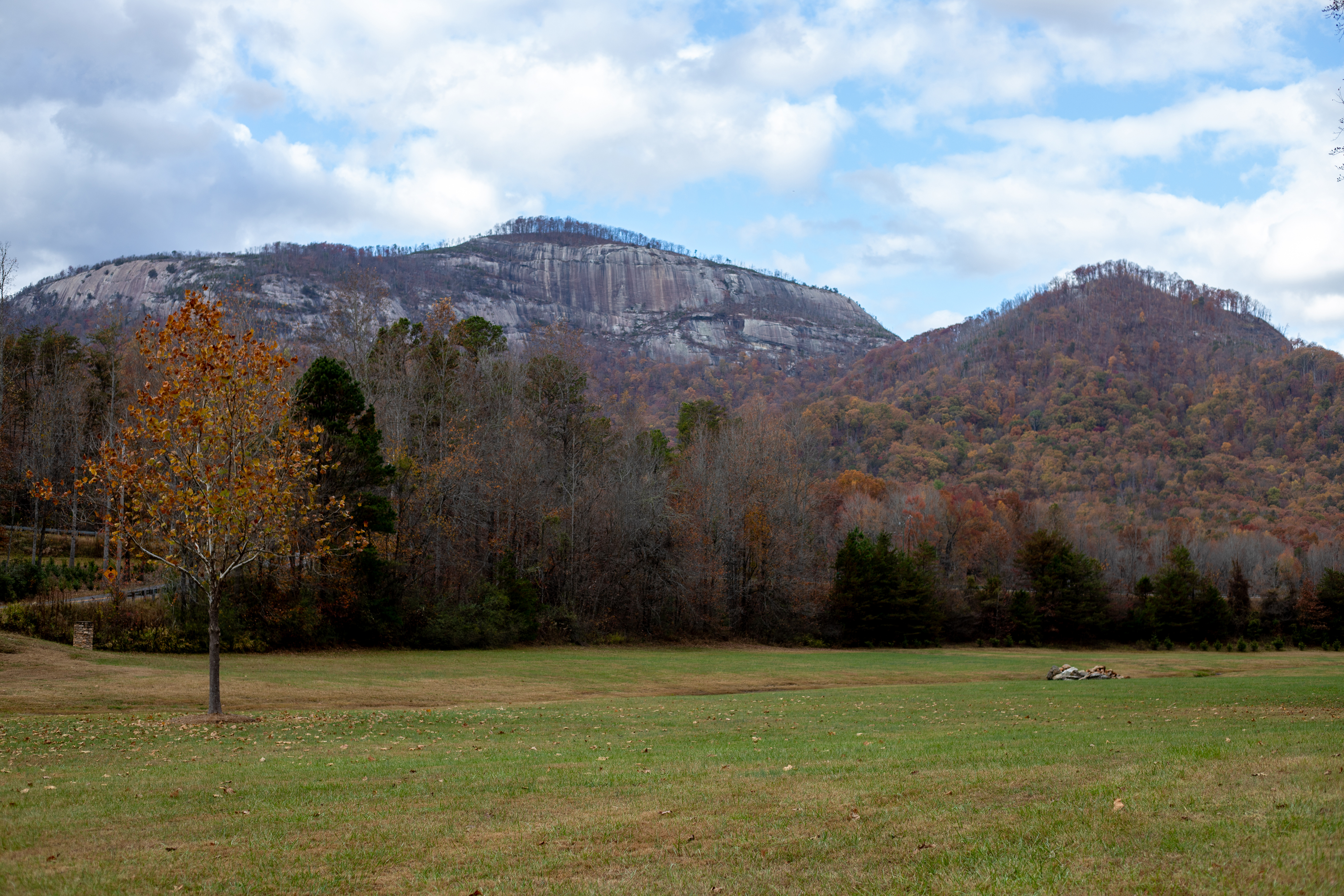More forests, farms, and green space protected by Upstate Forever in 2023
January 31, 2024Organization worked with landowners, funders, and partners to facilitate permanent conservation easements on nearly 800 acres last year in Upstate South Carolina
Local conservation nonprofit Upstate Forever announced that the organization’s nationally accredited land trust finalized permanent conservation easements on a total of 783 acres across the region last year. The conserved properties include forests, farmlands, waterways, and green space in some of the Upstate’s most rapidly growing counties.
“As more and more folks discover our region’s natural beauty and move to the Upstate, it becomes even more pressing to protect the working lands, forests, and natural areas that make this area so special, as well as the blueways that are critical to local drinking water,” said Scott Park, Upstate Forever’s Glenn Hilliard Director of Land Conservation.

“We are tremendously grateful to the forward-thinking landowners, partners, and funders who helped make these projects happen for the benefit of future generations of Upstate residents,” Scott Park added. “Without funding assistance from state and local entities like the South Carolina Conservation Bank, the Greenville County Historic and Natural Resources Trust, and the Upstate Land Conservation Fund, much of this critically important land protection work would be impossible.”
Conservation easement projects completed by Upstate Forever in 2023 include:
In Anderson County,
- Bishop Branch Pastures, 64.7 acres of agricultural land and wildlife habitat located in the rapidly developing region near Clemson University. Project funders include: the South Carolina Conservation Bank (SCCB), Upstate Land Conservation Fund (ULCF), U.S. Department of Agriculture (USDA) Agricultural Conservation Easement Program Natural Resource Conservation Service (NRCS), and the U.S. Environmental Protection Agency (EPA) under a Section 319 Grant through S.C. Department of Health and Environmental Control (SCDHEC)
“Without conservation groups, this valuable land would be lost to urban development,” said Reginald Hall, South Carolina Assistant State Conservationist-Programs NRCS. “Thanks to this conservation partnership, this easement will protect the land into perpetuity.”
In Cherokee County,
- Twin Ponds Hunt Club, a 91.7-acre privately owned property with approximately 70 acres of prime soils (having physical and chemical characteristics as determined by the USDA) and soils of statewide importance. Project funders include the SCCB and ULCF.
“The rolling Piedmont farmland of the Upstate is, perhaps, the most threatened conservation priority in our state,” said Raleigh West, executive director, South Carolina Conservation Bank. “To see progress on saving farms and wildlife habitat here gives me a great sense of relief and hope that we can continue to build momentum for more land protection in this important area.”
In Greenville County,
- Horsepen Creek II, a 31.7-acre property that contains critical wildlife habitat, wetlands, creeks, and forest in a rapidly developing area near downtown Simpsonville. Project funders include the SCCB, Greenville County Historic and Natural Resources Trust (GCHNRT), and ULCF.
- Meadow Fork Creek Forest, 7 acres in the South Tyger River watershed containing habitat, wetlands, and forestland that maintain the scenic and rural quality of the Tigerville area. This project was made possible by Renewable Water Resources (ReWa).
- Saluda Dam Acres, comprised of 69.6 acres nestled between one of the area’s busiest thoroughfares and the Saluda River. A pond, wetlands, and creeks flow to the Saluda, paired with lush upland forest support wildlife including bear, turkey, beaver, and deer. Project funders include the SCCB and GCHNRT.
- Previously announced: Beaverdam Creek Preserve, a 33-acre property outside the City of Greer boasting significant frontage along Beaverdam Creek, wildlife habitat, and 11 acres of wetlands. Project funders include the ULCF and the US EPA under a Section 319 Grant through SCDHEC.
- Previously announced: Blackwell Farm, 50 acres of woods and meadows in an area near Tigerville experiencing intense development pressure. Project funders include Greenville Women Giving, the SCCB, USDA-NRCS, and the US EPA under a Section 319 Grant through SCDHEC.
“If we are to sustain the quality of life for which Greenville County is justifiably known, it is critical that we continue to add to our open spaces not just for recreation but also for the myriad of environmental benefits they provide from clean water to wildlife habitat,” said Carlton Owen, Chair of the Board of the Greenville County Historic and Natural Resources Trust (GCHNRT). “Outright purchases to add to our parks and trails along with voluntary protection of private places like Saluda Dam Acres via a perpetual conservation easement play important roles.”

In Pickens County,
- The Happy Berry, a 22.36-acre farm that offers pick-your-own and pre-picked varieties of blackberries, blueberries, muscadines, grapes, figs, and more. Project funders include the SCCB and ULCF.
- Possum Holler, 79.4 acres located near Pumpkintown, comprised of nearly 100% native hardwood forest. Project funders include the SCCB, U.S. Fish and Wildlife Service Coastal Program, and ULCF.
- Reeds Run, 57.9 acres that expands protection of the iconic scenic viewshed of Table Rock and Grant Meadow along the Cherokee Foothills Scenic Highway. Project funders include the ULCF.
- Previously announced: Bryson Children’s Nature Walk, a 63-acre property slated to become a park and outdoor classroom for students at the adjacent Six Mile Elementary School. Project funders include the SCCB and ULCF.
In Spartanburg County,
- Cinder Branch, a 54.99-acre property comprised of open pastureland and mature hardwood forest that contributes to local water quality through its significant frontage on Cinder Branch, a tributary of the Pacolet River. Project funders include the ULCF.
- Triple Oak Farm, a 8-acre registered South Carolina Century Farm that has remained in the same family for six generations. Project funders include the SCCB and ULCF.
Additional projects with conservation partners — including the South Carolina Farm Bureau Land Trust, Naturaland Trust, The Nature Conservancy of South Carolina, Spartanburg Area Conservancy, and Upper Savannah Land Trust — comprised nearly 3,000 additional protected acres across Upstate South Carolina in 2023. These are projects where Upstate Forever did not take on a new conservation easement, but provided other support integral to the effort’s success.
Since its founding in 1998, Upstate Forever has permanently protected more than 35,500 acres through conservation easements and partner efforts across the ten-county Upstate region of Abbeville, Anderson, Cherokee, Greenville, Greenwood, Laurens, Oconee, Pickens, Spartanburg, and Union Counties.
Upstate Forever
Upstate Forever is a nonprofit conservation organization that protects critical lands, waters, and the unique character of the Upstate of South Carolina. We focus our work on the ten counties of Abbeville, Anderson, Cherokee, Greenville, Greenwood, Laurens, Oconee, Pickens, Spartanburg and Union. Since 1998, we have worked to protect the natural assets that make the Upstate so special: our farmlands, forests, natural areas, rivers, and mountains. We are committed to ensuring that our communities are vibrant and retain their green spaces, outdoor heritage, and unique identities in the face of rapid development and significant sprawl. Upstate Forever has offices in Greenville and Spartanburg. For more information, visit www.upstateforever.org.

















